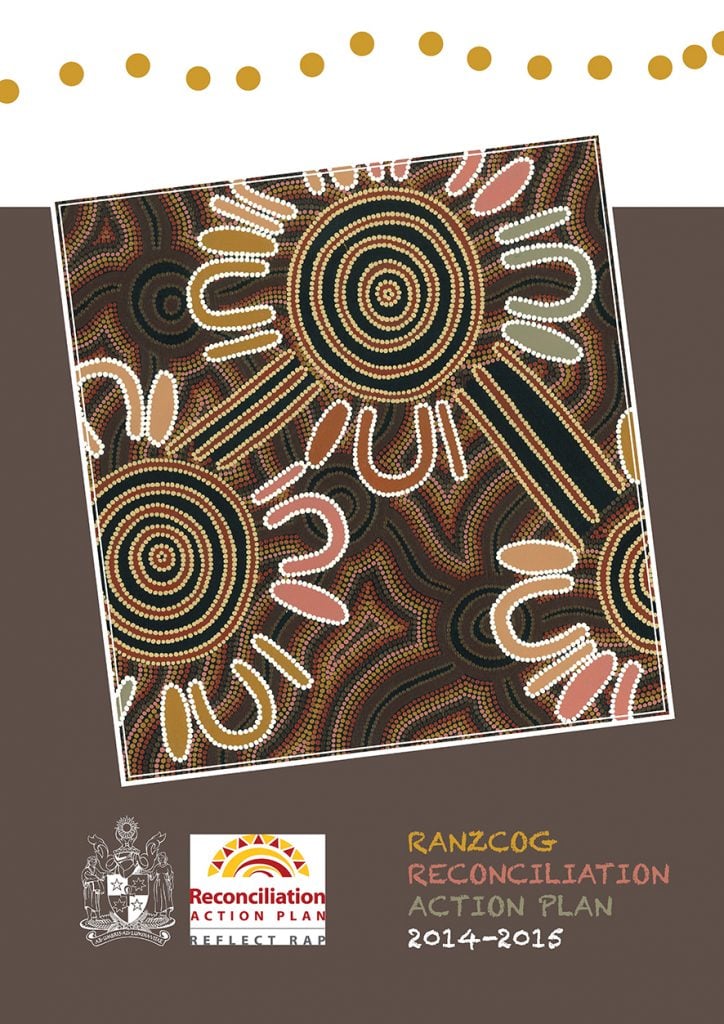“Health inequalities and the social determinants of health are not a footnote to the determinants of health. They are the main issue” – Michael Marmot
Working in Australia and overseas both as a medical student and as a doctor had a significant impact on Jacqueline Boyle. As a medical student, she spent three months in Zimbabwe and then, as a junior doctor, worked for six months with returned refugees in El Salvador. She came back to Australia and, with an interest in improving equity in women’s health, began specialist training in obstetrics and gynaecology with RANZCOG while completing a Master’s in Public Health and Tropical Medicine at James Cook University. ‘I met a lot of people in James Cook; people from rural and remote Australia and the Pacific who inspired me to apply a public health lens to women’s health.’
Jacqueline and her family moved to Darwin in 2002. Unexpectedly, she was contacted by Professor Rob Norman from University of Adelaide and Professor Kerin O’Dea from the Menzies School of Health Research to see if she was interested in completing a PhD along with clinical work. With a baby and two young children, Jacqueline hesitated. However, this was an exciting opportunity to work with a team from Menzies; an established research institute with long-term rural and remote community partnerships with in the Northern Territory. The team was keen to explore a specific women’s’ health issue; namely polycystic ovary syndrome (PCOS), a condition that while anecdotally was a significant problem for Aboriginal and Torres Strait Islander women, remained poorly documented. She accepted the offer.
Jacqueline received a Fotheringham Research Fellowship from the RANZCOG Foundation in 2004 to begin this research. ‘I hadn’t planned to undertake research previously, so the Fotheringham Scholarship enabled me to set up my project and obtain sufficient pilot data that meant I was then successful in obtaining a National Health and Medical Research Council Scholarship and was also awarded the Australian Academy of Science, Douglas and Lola Douglas Scholarship. This kick-started what has turned out to be a long-term participation in national and international research in this field.
Jacqueline spent eight and a half years in Darwin, and completed her PhD while undertaking clinical work in Darwin and remote communities in the Top End of the NT. She moved to Melbourne in 2011 and was appointed Deputy Director of the Monash Centre for Health Research and Implementation (MCHRI). ‘My role is to lead the public health and health equity unit within MCHRI, incorporating broad social determinants of health, with a focus on populations that are more at risk of disadvantage in health access, health literacy and health outcomes. ‘We focus on collaborating with communities, health services and government departments to improve healthcare and services in the areas of reproductive health, metabolic health, and pregnancy across Australia.’
Academia has opened new and unexpected doors for Jacqueline in health advocacy. ‘I think the benefit of research is that it has allowed me to be involved in steering policy and guidelines, such as participating in advisory groups within the AIHW, co-leading the Women’s theme of the Monash Partners academic health sciences centre and representing RANZCOG on the National Migrant & Refugee Women’s Health Partnership. An exciting initiative has been the collaboration with HealthInfoNet together with support from the Potter Foundation and MCHRI to establish a women’s yarning site that has more than 400 members interested in connecting with others who work in Aboriginal and Torres Strait Islander health.
‘The important areas I have become involved with because of my PhD are the first National Guidelines on PCOS and, subsequently, the International Guidelines launched in July this year. I have also led a team developing an app specifically for women with PCOS linked to the International guidelines, and is currently being pilot tested globally. These are very tangible outcomes which make positive contributions towards improving diagnoses, management and the dissemination of information. We are particularly excited about using new technologies to provide improved health information and health care to women who may not otherwise access this, and to improve the development of networks for researchers and clinicians across Australia.’
 Jacqueline was Chair of RANZCOG’s Aboriginal and Torres Strait Islander Women’s Health Committee (2011–2017) and chaired the scientific program of the Aboriginal and Torres Strait Islander Women’s Health Meeting in 2008, 2011 and 2014. She has also been involved in drafting RANZCOG’s Reconciliation Action Plan and developing online training, grants, and other activities that work towards the improvement of equity in women’s health.
Jacqueline was Chair of RANZCOG’s Aboriginal and Torres Strait Islander Women’s Health Committee (2011–2017) and chaired the scientific program of the Aboriginal and Torres Strait Islander Women’s Health Meeting in 2008, 2011 and 2014. She has also been involved in drafting RANZCOG’s Reconciliation Action Plan and developing online training, grants, and other activities that work towards the improvement of equity in women’s health.
Aboriginal and Torres Strait Islander women experience higher risks of preterm birth, low birth-weight, and increased perinatal and maternal mortality. The key to improving some of these outcomes is addressing the socioeconomic determinants of health and providing culturally safe health services. ‘Having some understanding of the history and politics that have shaped the lives and health of Aboriginal and Torres Strait Islander people helps to place some health behaviours into context. For example, the policy of forcibly removing children from Aboriginal families until the 1960s may still engender distrust of the “system” in Aboriginal mothers’, she and her co-author Marilyn Clarke acknowledge in their article Antenatal care for Aboriginal and Torres Strait Islander women. ‘Aboriginal and Torres Strait Islander culture has many strengths that can provide a positive influence, such as a supportive extended family network and kinship, connection to country, and active cultural practices in language, art and music. It informs a more holistic view of wellbeing.’
‘I believe that all those employed in the medical professions must undertake the difficult task of recognising, in all its implications, that, by definition, health work is political work. If the health professions ignore the shocking state of Indigenous health in this country then they exacerbate the problems of history. On the other hand, if they take the initiative to act, to advocate and to work for significant change, they assist in the crucial work of reconciliation between black and white Australians.’ – Lowitja O’Donoghue
By citing O’Donohue, Jacqueline would like to highlight the important role all health providers can play. ‘We must enhance health providers’ cultural responsiveness to provide holistic, culturally appropriate services with an individualised approach. But we can only do this if we engage more closely with Aboriginal and Torres Strait Islander communities and actually listen to what they want. We also need to have strategies that help to increase the number of and build capacity of Aboriginal and Torres Strait Islander health practitioners and researchers.’
RANZCOG is providing support across all these areas through the Aboriginal and Torres Strait Islander Women’s Health Committee with the leadership of Marilyn Clarke, the first Aboriginal Fellow, and new Fellow Kiarna Brown and trainee Alicia Veasey.
Similarly, working with women from culturally and linguistically diverse backgrounds requires health systems, health services and health providers to strive to be culturally responsive, and to be able to recognise and address barriers to health and health care. The National Migrant and Refugee Women’s health partnership is working towards facilitating these processes and research can play a role. For example, Jacqueline’s team have collaborated with community members, health services and an NGO (Centre of Perinatal excellence) to implement screening for mental health in pregnancy at a clinic for refugee women. The collaboration understood the needs of women and health staff which led to the provision of screening tools translated into the more commonly used languages. These were administered on an iPad with current development of the tools in audio format for those who are illiterate in their own language. This has been well accepted by women and health staff and increased significantly the number of women identified at risk who can access support.
However, a combined research and academic career is not without challenges. ‘Academic funding is never guaranteed, and juggling family life, clinical work and academic work is tricky but I have great family and workplace support and enjoy the work I do. To be honest, I love the one-on-one interaction you have in a clinical role, but research has given me the opportunity to work on change at a system-level. There’s often a big gap in moving from knowing what works in a research setting or knowing what should be done based on evidence informed guidelines to knowing how these can be implemented effectively in the real world. This together with ensuring community engagement in health care and health research is the space where I’ve decided to work.’
Today, Jacqueline works at MCHRI, in the Faculty of Medicine, Nursing and Health Sciences at Monash University as an associate professor in public health. She has published 80 articles, two book chapters and one commissioned report. If you’re a health professional interested in improving Indigenous health, learn more with her ANZJOG article ‘How can health professionals improve Indigenous health?’


